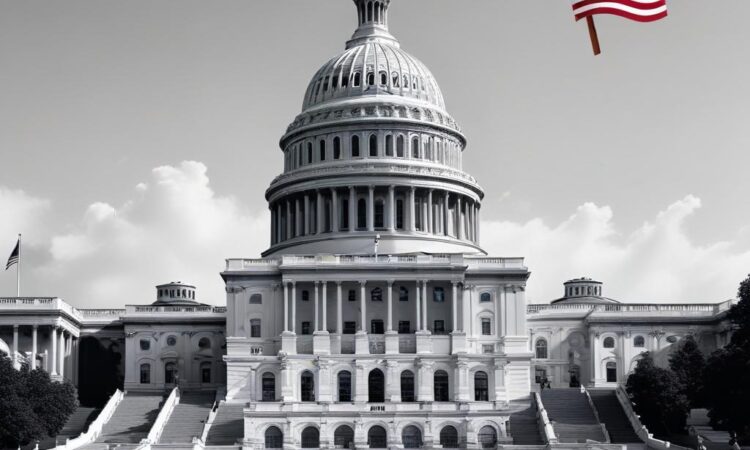TikTok Denies Sale to Musk: Report Called ‘Pure Fiction’
TikTok has categorically dismissed reports suggesting a potential sale of its US operations to Elon Musk, labeling the claims as “pure fiction.” The statement comes as the company faces a January 19th deadline related to ongoing concerns about data security and potential national security risks.
The persistent rumors of a sale have swirled for weeks, fueled by speculation regarding the company’s future in the US market. These rumors gained traction amidst heightened scrutiny from US lawmakers and regulatory bodies who have expressed deep concerns about the handling of user data by the Chinese-owned company, ByteDance.
TikTok has consistently maintained its commitment to operating independently in the US and has repeatedly emphasized its dedication to addressing concerns regarding data privacy and security. The company has undertaken various measures, including the establishment of a dedicated US data security team and the implementation of enhanced data protection protocols, in an effort to assuage these concerns.
The January 19th deadline is believed to be linked to a previous agreement or a point of regulatory review, the exact nature of which remains unclear. However, the proximity of this deadline to the circulating sale rumors has only served to amplify the speculation. TikTok’s firm denial aims to quell these rumors and clarify its position.
The company’s statement further asserts that its focus remains on continuing to provide a platform for its millions of American users while complying with all applicable laws and regulations. TikTok’s denial underscores the company’s determination to navigate the challenges it faces in the US market and underscores its commitment to its US user base.
The ongoing saga highlights the complex geopolitical and regulatory landscape surrounding technology companies operating internationally. The situation underscores the tensions between the desire to protect national security interests and the need to foster innovation and competition in the global digital economy.
Experts suggest that the denial from TikTok carries significant weight, given the company’s previous proactive efforts to address US concerns and demonstrate its commitment to independent operation. However, the situation remains fluid, and future developments will continue to shape the narrative.
The denial, though strong, does not fully eliminate the possibility of future changes in TikTok’s US operations. The company’s ongoing efforts to address regulatory concerns and maintain a positive relationship with US lawmakers will be crucial in determining its long-term future in the American market.
The situation underscores the intense scrutiny facing foreign-owned technology companies operating within the United States. This scrutiny isn’t limited to TikTok; other similar companies face similar regulatory challenges, often leading to protracted negotiations and evolving regulatory landscapes.
The ongoing debate around data security and national security risks, particularly concerning technology platforms with significant user bases, is likely to persist. The TikTok case serves as a prominent example of the broader tensions between technological innovation, global commerce, and national security interests.
Despite TikTok’s firm denial, the speculation surrounding its future in the US market is unlikely to disappear entirely. The company will need to continue demonstrating its commitment to transparency and user data protection to maintain the trust of US regulators and users alike.
The evolving regulatory environment and the ongoing dialogue between TikTok and US regulatory bodies will shape the outcome of this complex situation. The next few weeks and months will be critical in determining the long-term trajectory of TikTok’s operations within the United States.
The intense public and political scrutiny surrounding TikTok underscores the significant challenges faced by global technology companies navigating the complexities of operating within diverse regulatory environments. The company’s future hinges on its ability to effectively address these challenges and build a relationship of trust with US policymakers and regulators.
Further developments in this ongoing saga are expected, and the situation warrants continued monitoring as the January 19th deadline approaches and the regulatory landscape continues to evolve. The outcome will have significant implications for both TikTok and the broader technology industry.
The stakes are high, not only for TikTok but also for the broader conversation surrounding data security, national security, and the regulatory frameworks governing global technology companies. This case serves as a pivotal moment in shaping future policy decisions and regulatory approaches in this increasingly complex arena.
The coming weeks will be crucial in shaping the narrative, and the outcome will likely have far-reaching consequences for the future of international technology companies operating within the US market. The saga continues.
This situation emphasizes the significant challenges faced by large technology companies in balancing their global operations with the specific regulatory and political landscapes of individual countries. The TikTok case offers a valuable case study for understanding these complex interactions.
The ongoing uncertainty surrounding TikTok’s future underscores the need for a clear and consistent regulatory framework that balances national security concerns with the promotion of innovation and competition in the digital economy. The dialogue surrounding this issue is far from over.
The dynamic nature of this situation and the ongoing evolution of the regulatory landscape makes it impossible to predict with certainty the ultimate outcome. The coming months will likely bring further developments and clarifications.
The story of TikTok’s challenges in the US serves as a compelling example of the complexities and uncertainties faced by global technology companies operating in a rapidly evolving political and regulatory environment. The narrative continues to unfold.
In conclusion, while TikTok has firmly denied the sale rumors, the ongoing scrutiny and the looming January 19th deadline highlight the significant challenges the company faces in navigating the complex landscape of US regulations and public perception. The future remains uncertain.

